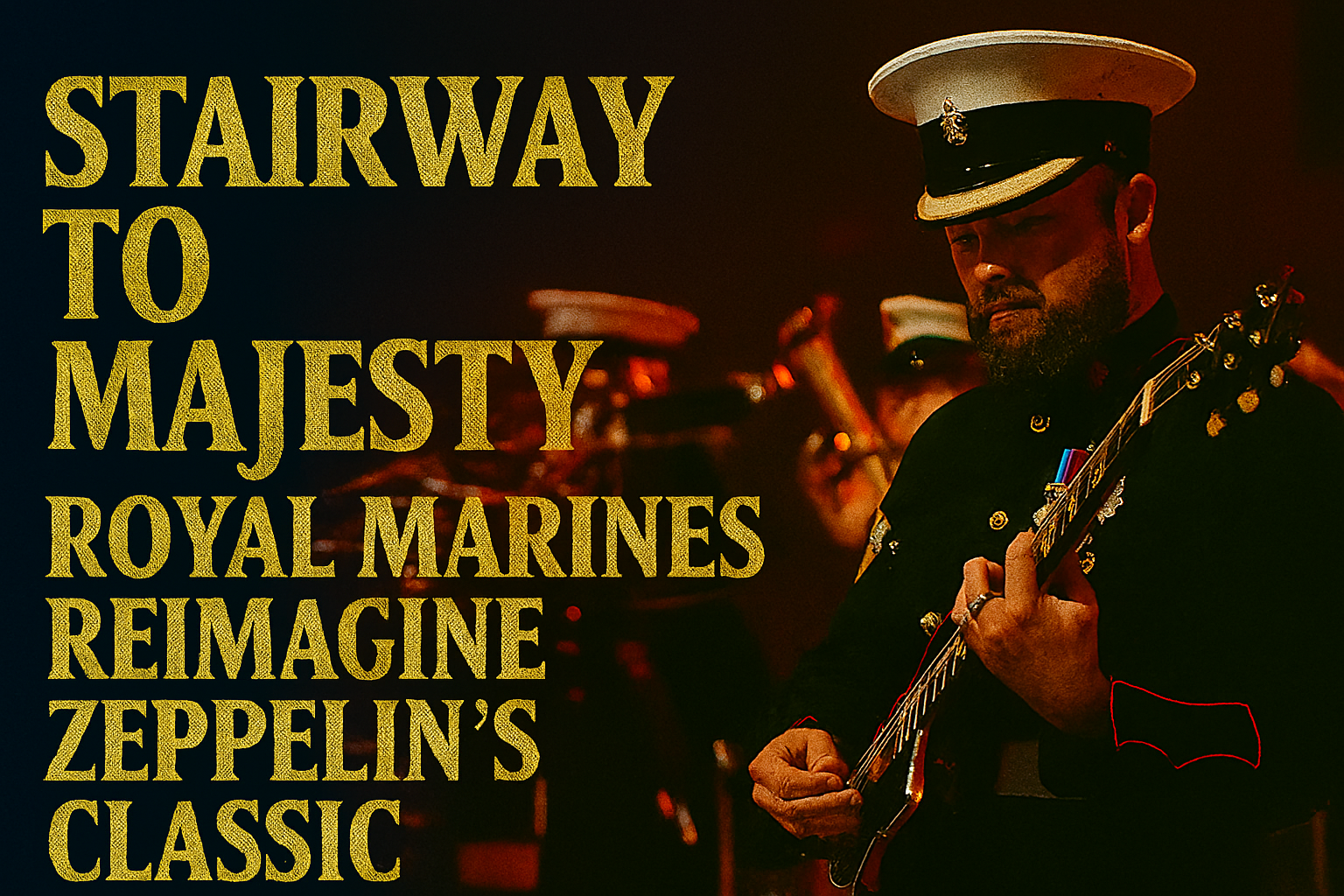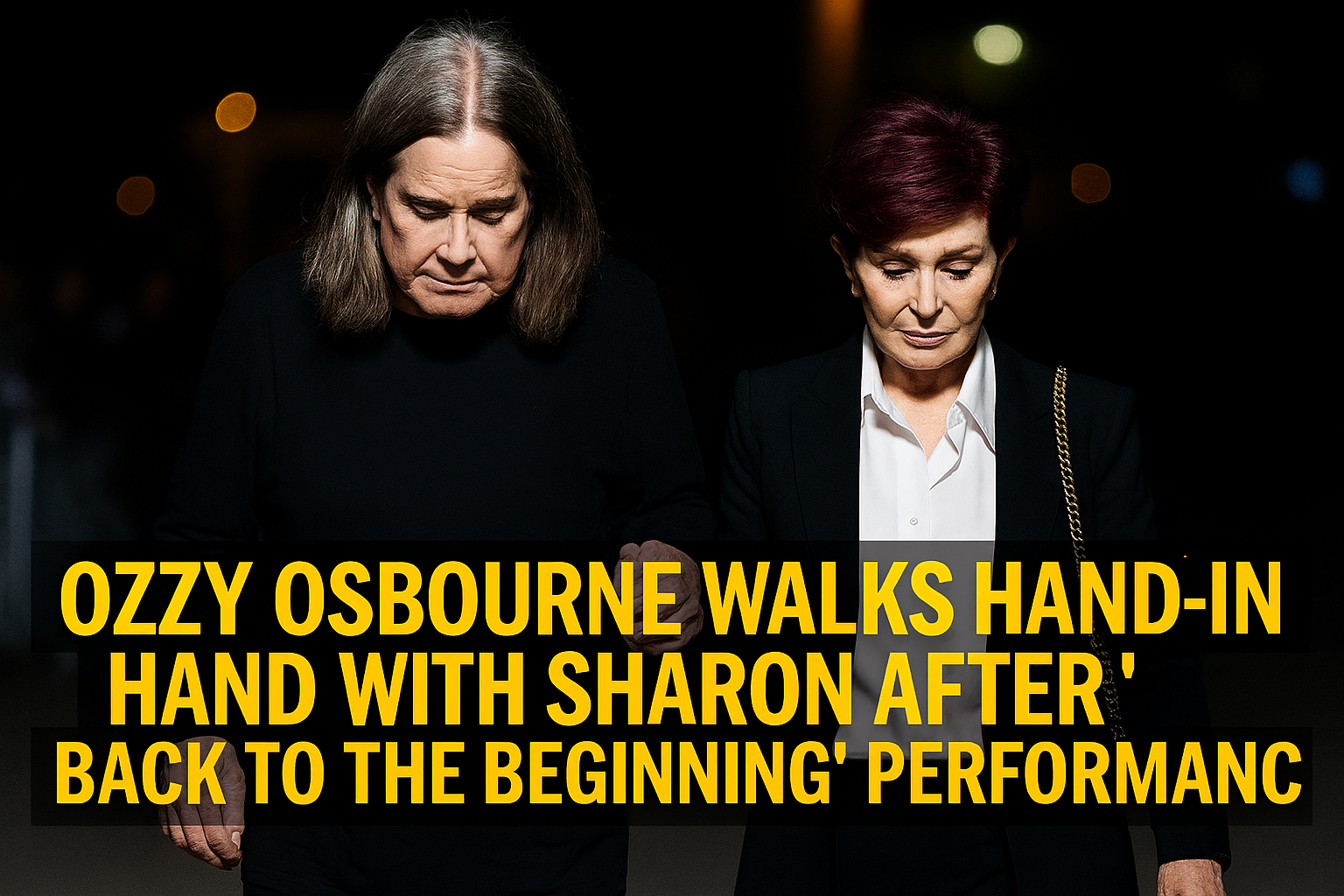The Bands of HM Royal Marines’ performance of “Stairway to Heaven” at the Royal Albert Hall transformed Led Zeppelin’s iconic rock anthem into a cinematic, emotionally charged orchestral masterpiece.
When the precision of a military band meets the soul of rock music, the result can be extraordinary. That’s exactly what unfolded at the Royal Albert Hall when the Bands of Her Majesty’s Royal Marines took on one of the most legendary songs in rock history—Led Zeppelin’s “Stairway to Heaven.” The performance, part of the Mountbatten Festival of Music, was not just a tribute; it was a reinvention that honored the original while elevating it to new heights.
From the first notes, the audience was captivated. The arrangement fused classical discipline with rock energy, creating a soundscape that was both grand and intimate. The band’s orchestral power—brass, strings, woodwinds—was complemented by electrifying guitar leads that echoed Jimmy Page’s iconic riffs. The result was a version of “Stairway to Heaven” that felt cinematic, almost like a film score, yet deeply rooted in the emotional core of the original.
The performance was marked by flawless execution. Every note was delivered with precision, every transition seamless. The musicians, dressed in full ceremonial uniform, brought not only technical skill but a sense of reverence to the stage. Their discipline didn’t dampen the emotion—it amplified it. The contrast between military formality and the song’s spiritual, almost mystical tone created a powerful tension that held the audience in rapt attention.
One of the standout elements was the inclusion of a live vocalist, whose delivery was both haunting and heartfelt. Her voice soared above the orchestration, bringing new emotional depth to lyrics that have echoed through generations. The vocal phrasing was deliberate and expressive, allowing the audience to rediscover the song’s meaning in a fresh context.
The Royal Albert Hall itself added to the magic. With its historic architecture and acoustics, the venue provided a majestic backdrop for the performance. The lighting was subtle yet dramatic, casting warm glows across the musicians and highlighting key moments in the arrangement. The setting reinforced the grandeur of the tribute, making it feel like a moment suspended in time.
What made this rendition truly memorable was its ability to bridge genres and generations. “Stairway to Heaven” is a song that has been covered countless times, but rarely with such emotional richness and orchestral scope. The Royal Marines didn’t try to replicate Led Zeppelin—they reimagined the song through their own lens, bringing a sense of ceremony and cinematic storytelling to a rock classic.
Audience reactions were overwhelmingly positive. Viewers described the performance as “goosebump-inducing,” “unexpectedly moving,” and “one of the best tributes ever.” Many praised the band’s ability to maintain the soul of the original while adding layers of complexity and grandeur. The video of the performance quickly gained traction online, drawing millions of views and sparking conversations about the power of genre fusion.
This tribute also speaks to the evolving role of military bands in contemporary music. Traditionally associated with marches and patriotic tunes, groups like the Bands of HM Royal Marines are now exploring broader musical landscapes. Their ability to interpret rock, pop, and cinematic scores with precision and emotion is redefining what a military ensemble can be.
In the end, this performance of “Stairway to Heaven” wasn’t just a cover—it was a celebration. It honored the legacy of Led Zeppelin while showcasing the versatility and artistry of the Royal Marines. It reminded audiences that music, at its best, transcends boundaries—between genres, generations, and expectations.
Emotionally rich, technically flawless, and visually stunning, the Bands of HM Royal Marines’ rendition of “Stairway to Heaven” stands as one of the most memorable tributes ever performed. It’s a testament to the enduring power of the song—and to the transformative potential of music itself.










